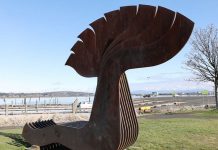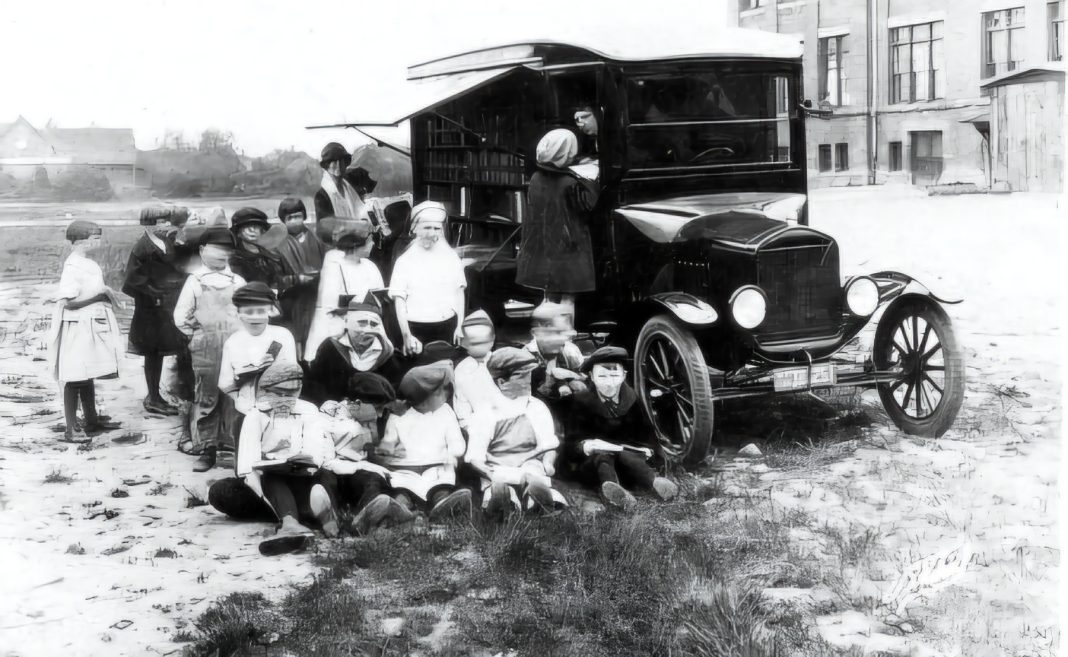In a time when gasoline was a novelty and libraries weren’t ubiquitous, a mechanical marvel emerged from the workshops of Everett, and it was about to introduce a brave new world (book pun intended) to the Snohomish Community. Aptly named Pegasus, this literary chariot, driven by the spirit of adventure, traveled throughout the region, extending library services to underserved and remote communities in this new frontier. This book-laden, mobile library in the form of a Ford Model T was a pioneer of its time, carrying more than just books but also a wealth of knowledge and the beauty of imagination. Though it only served early Everett residents for a little over two decades, in that short time, it quickly became a cherished staple in the Snohomish community, and still, it stands today, its story a testament to the unyielding power of the written word.
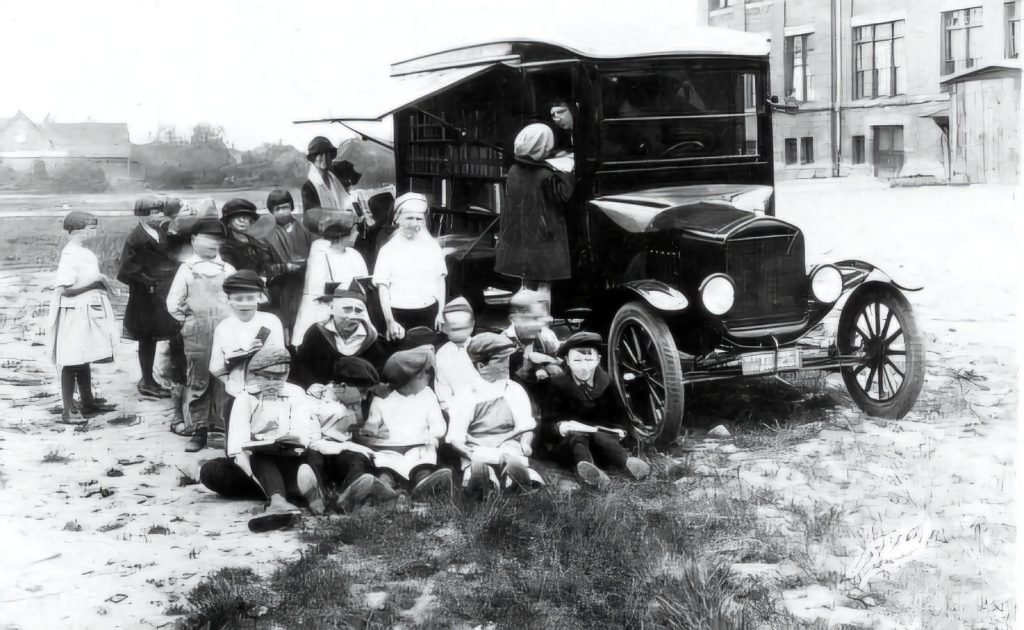
Pegasus Takes Flight: The Story of Everett’s First Bookmobile
In a strange twist of fate in the years between the end of World War I and the Great Depression, the Everett Public Library found itself with an unusual surplus of funds. Should these funds not be used, they were to be reverted back into the city’s general funds. Determined not to lose a nickel of library funding, the then-library director, Mabel Ashley, worked together with the library board and developed a plan to buy and operate a bookmobile. The plan was a win-win, as it allowed the library to keep the funds and use them in a way that allowed the library to bring its services directly to the local community.
In late 1923, they purchased a Ford Model T truck, the foundation of what would become an iconic symbol of Everett: Pegasus, the bookmobile. The truck’s chassis was fitted with a fruit vendor-style van body and shelving with a capacity of 1,000 books. Local historians believe its name to be a reference to Christopher Morley’s 1917 novel “Pamassus on Wheels,” which included a mobile bookstore.
When Pegasus hit Everett streets in May of 1924, it made history as the first bookmobile in Washington; it was also the second bookmobile on the West Coast. Its initial route included three schools and an orphanage, ensuring the nourishing of young minds throughout the community. In addition, it also serviced two mills and two hospitals, delivering library services not only to the region’s hardworking laborers but also to the many men who were injured in industrial accidents.
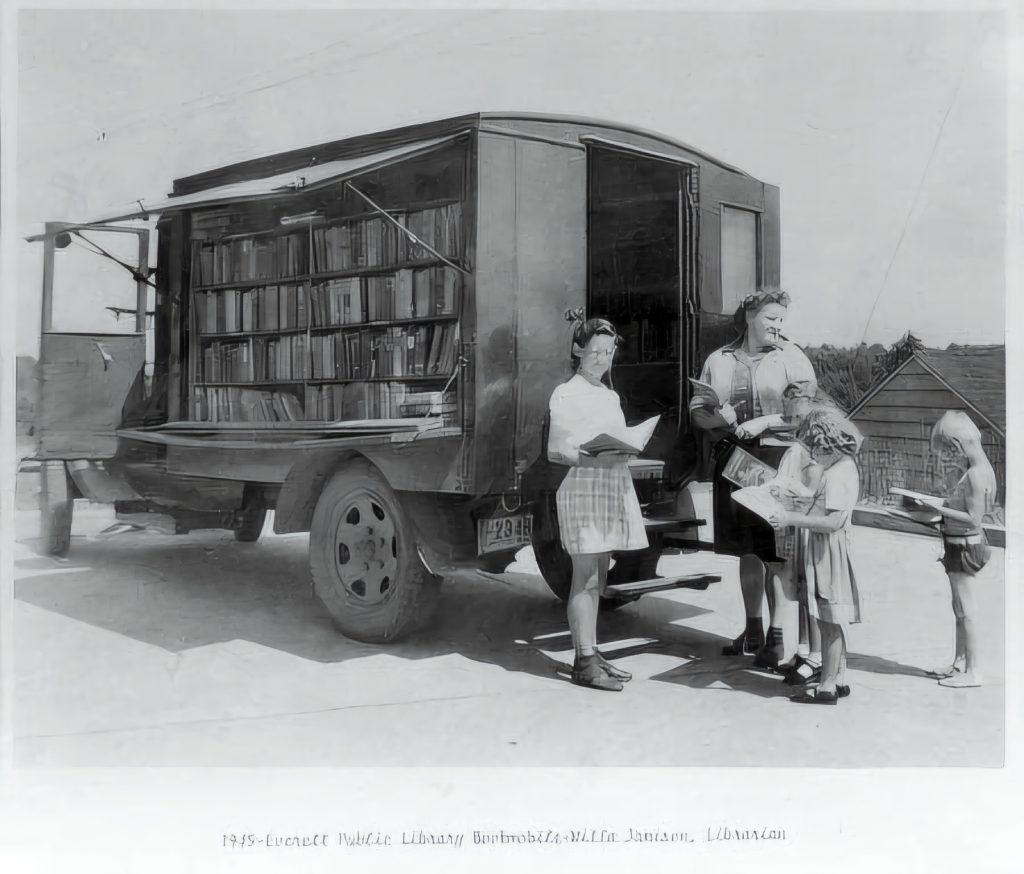
Pegasus Becomes an Epic Short Story in Early Snohomish History as a Beloved Bookmobile
The bookmobile’s service was indispensable, but its lifespan was relatively short. In 1929, to ensure the continuation of this vital program, the bookmobile’s body was transferred to a new Ford Model AA chassis. This extended its operational life for another two decades. However, by the 1950s, the wear and tear of the road and the inherent risks of driving such a vehicle took their toll. Pegasus, once a symbol of progress and community spirit, was retired from service and sold at auction. It was purchased by Everett Boat House owner Bob Koger for $250. The commercial fishermen then resold it in 1951 to Everett’s Al Hansen who used it to haul gravel, a task which the truck was much better suited for.
The bookmobile’s legacy, however, was far from over. Its impact on the Everett community was profound, having brought the library to the people and fostering a love of reading and learning in generations of residents. Though Pegasus itself would eventually fade from public view, it was far from forgotten, and the Everett Public Library continued to provide bookmobile services until 2014 when the outreach program was cut due to budget constraints.
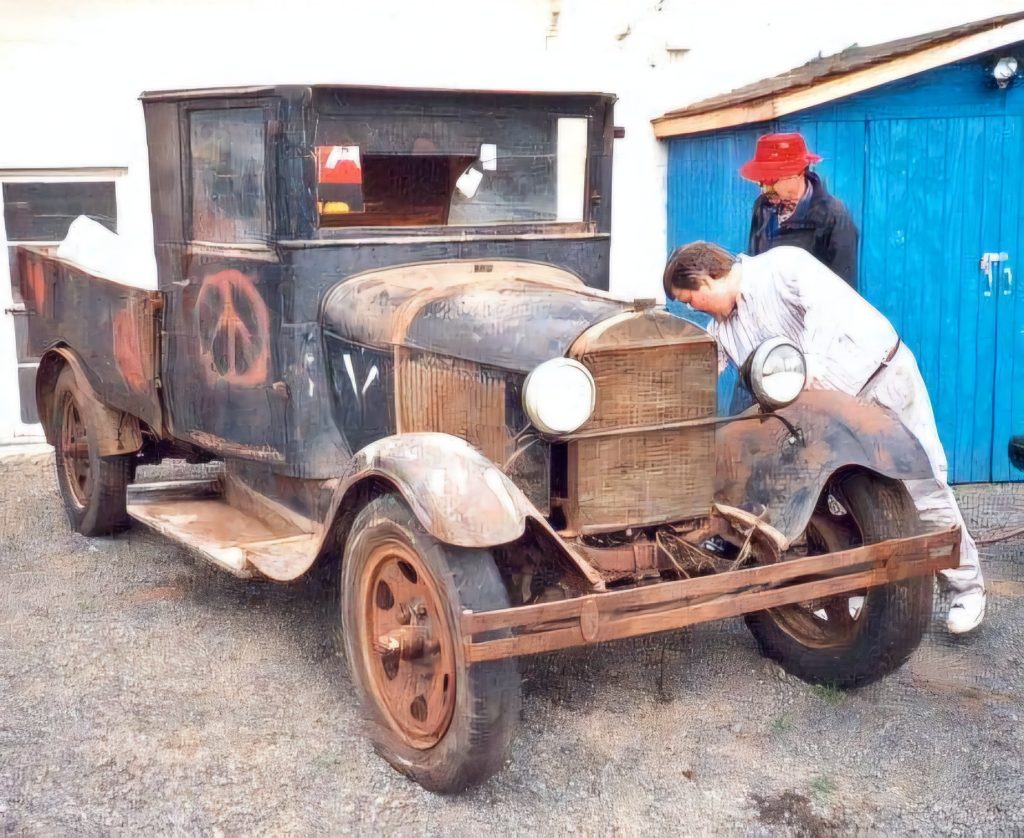
Turning the Page: The Restoration of Everett’s Bookmobile
Sometime over the next four decades, Pegasus would seemingly vanish entirely, becoming but a distant memory for Everett residents, albeit a strong one. The spirit of this iconic bookmobile lingered in the hearts of many community members, including that of Mark Nesse, a former Everett library director with a deep affection for the historic vehicle.
In 1992, Nesse learned of Pegasus’ whereabouts and spearheaded a remarkable rescue mission. With the support of the Everett Rotary Club, along with other donors and volunteers, a restoration project was launched. The Rotary Club paid Hansen $1,000 for Pegasus. At the time of purchase, it had been found in a state of disrepair, with its balloon tires flat and windshield broken.
After a year of painstaking labor, Pegasus emerged from the restoration process as if reborn. Affectionately nicknamed “Peggy,” the restored bookmobile became a cherished symbol of the city, proudly participating in parades and community events. However, the passage of time and changing circumstances eventually presented new challenges on its road to rediscovery. The 2014 budget cuts that would force the closure of the Everett Library’s modern-day bookmobile program would also greatly impact Pegasus. This financial hardship and program loss resulted in the city facing difficulties in maintaining Pegasus, forcing the historic vehicle into temporary storage.
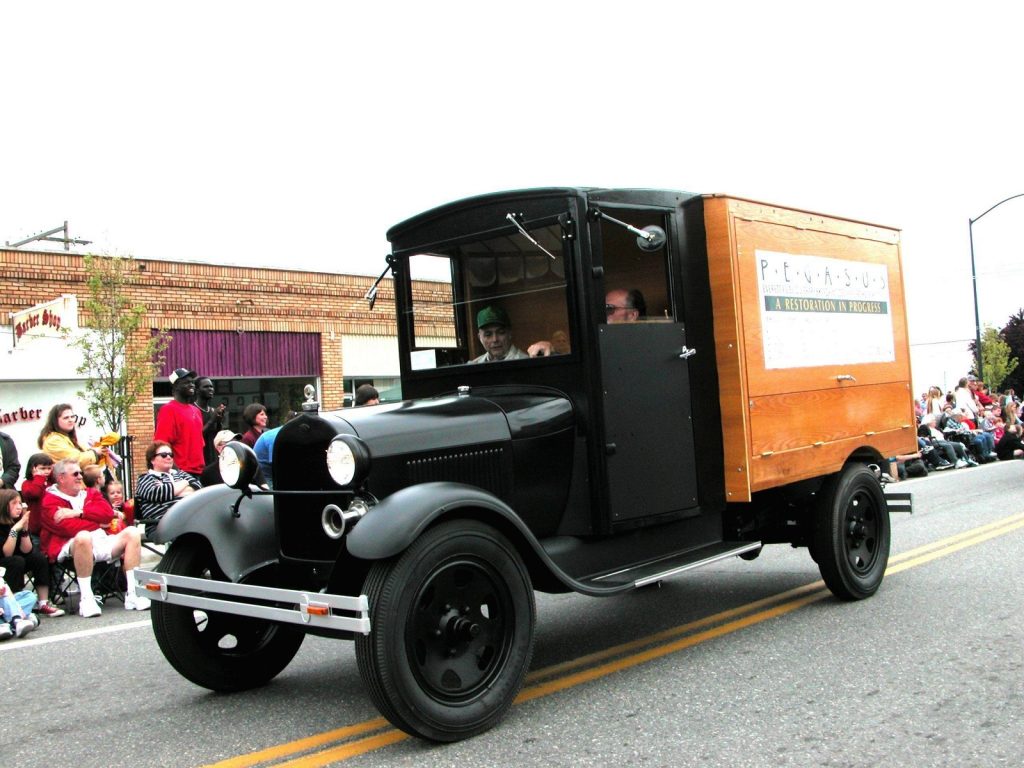
A Happy Ending: Everett’s First Bookmobile Tells Historic Tales at its New Home at the Everett Museum of History
It seemed that once again, Pegasus faced an uncertain future as it spent the next few years in storage. Thankfully, city and library officials recognized a need for a permanent and suitable home for the iconic city symbol. Starting in 2019, conversations began with the Everett Museum of History, with a goal to secure a long-term loan for the historic bookmobile so that it may be put on display for the public to enjoy. City officials emphasized the importance of preserving Pegasus for future generations, viewing the museum as the ideal location.
The museum eagerly welcomed the opportunity to care for this iconic piece of Everett’s history. A 20-year loan agreement was established, with the possibility of extension. While the museum’s main building was still under construction, scheduled to open in 2021, officials planned to create a temporary gallery to showcase a portion of the museum’s collection, including Pegasus, when possible.
Museum leadership envisioned a space that went beyond traditional exhibits, fostering community engagement through workshops, lectures, and other events. The museum’s future permanent home, anticipated to open in 2026, would offer even more opportunities to display and interpret Pegasus within the broader context of Everett’s history.
From its early days as a mobile library to its eventual home in the Everett Museum of History, this beloved Everett icon has weathered the test of time to tell its own story. Unfolding into a captivating saga of community empowerment, historic preservation, and the transformative power of books, its journey from a vital community resource to a treasured museum exhibit is a testament to the enduring impact it has had on the city. As it takes its rightful place among the city’s cherished artifacts, Pegasus will continue to inspire and encourage a lifelong love of learning and reading in future generations while fostering a deeper understanding of Everett’s past.












